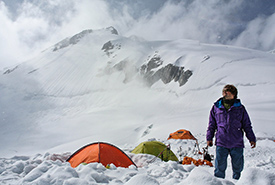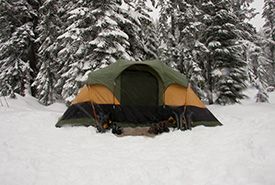Eco-friendly camping: Leaving no trace

Camping is a refreshing way to reconnect with yourself, the people close to you and with Mother Nature. (Photo by Pixabay)
Camping is a refreshing way to reconnect with yourself, the people close to you and with Mother Nature. It is a great way to forget your troubles and reset your mind, body and soul. For these and many other reasons, the number of people camping is growing. Unfortunately, this increases the chances that the environment will end up being negatively affected by irresponsible campers. This calls for the need to come up with “leave no trace” principles. When going camping, it is important to avoid messing up the ecology of your camping area. You owe it to Mother Nature to leave your camping area exactly as you found it, if not better.
Here are some tips that you can follow to practice eco-friendly camping the next time you are out enjoying nature.
Plan ahead
Proper planning is crucial when it comes to camping. Take some time to learn more about the campground where you’ll be staying. Are there rules that need to be adhered to? If so, what exactly are they? Now you can prepare and pack accordingly.
If a camping trip is not well planned, it will likely not be as successful. Pack strategically by ensuring you have the right camping gear. There are several stores that sell quality camping gear, such as MEC. It cannot be stressed enough how vital it is to pack wisely when planning a camping trip. Avoid carrying unnecessary baggage. Do not pack cans, disposable plastic bottles or anything that is not eco-friendly.
The smaller the camping group, the better. If this cannot be avoided, then consider splitting the larger group into smaller groups. Too many people in one place can strain the environment and negatively affect its ecosystem.
Related blog posts

It's important to camp only at designated campsites. (Photo by Pixabay)
Camp only at designated campsites
Trails and campsites are usually identified and marked by whichever authority is in charge of that campground. Only camp at these campsites, and use the designated trails both leading to and within the campground. There is a reason why these campsites and trails were chosen. If this is not adhered to, then that area's ecosystem could be affected. Do not camp near water sources since wild animals frequently visit these areas.

Practice campfire etiquette. (Photo by Pixabay)
Practice campfire etiquette
Smoke and ashes can be harmful to the surrounding ecosystem. If possible, avoid cooking over a campfire and use a camping stove instead. If you have a campfire, once you are done, ensure you put it out completely.
Do not disturb wildlife
If someone came into your home and started making noise and messing around, you would obviously not like it. The same applies to wildlife. Wild animals do not like to be disturbed. You should try to be as quiet as possible and keep unnecessary movements to a minimum.
Practice proper waste disposal
Leave no trace behind. Do not litter and leave waste lying around your campsite. You should leave it exactly the way you found it. For proper waste management, ensure you carry extra waste bags so that you can carry all your waste away from the campsite and dispose of it at the designated areas. Plastic waste should not be burned or buried, as some wild animals can dig it up and leave the waste lying around.
Do not remove anything from the site
Do not take anything away from the campsite and do not move things around. Do not cut branches, move rocks or feed wildlife. Although seemingly harmless, these actions can mess up the site's ecosystem. Everything should be left exactly the way you found it. If you have to get water from any water source, be careful not to introduce any chemicals such as dish soap into it.
If you love nature, it will love you back. This principle should be at the back of everyone's mind while they’re camping. It doesn't hurt to show a little respect to Mother Nature; she will greatly reward you.

